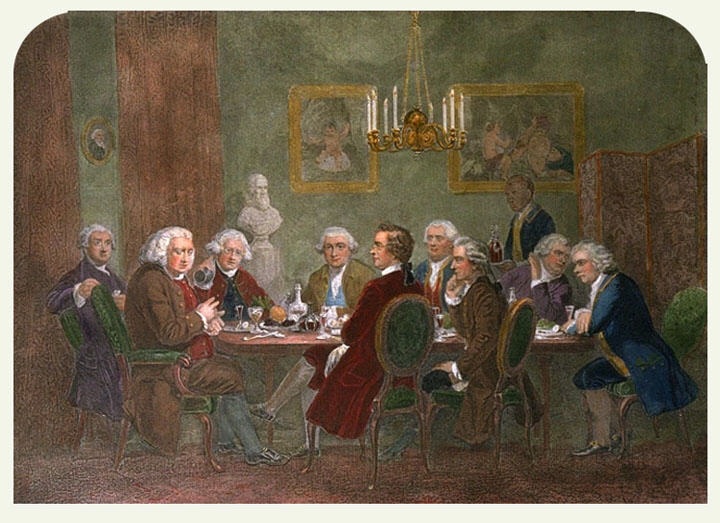Plate I: Dr. Samuel "Pomposo" Johnson, the "Tenth Muse, Lately Sprung From Lichfield"
"Few things are so liberally bestowed, or squandered with so little effect, as good advice."
So said the great eighteenth-century biographed Brit Samuel Johnson (1709-84). Yet that same bewigged mountain of a dictionarian bestowed a liberal portion of his own helpful advice and apt aphorisms on his fellow Englishmen. His nagging sidekick-scribe, James Boswell, played Johnson's Plato, recorded much of the man's wisdom in his famed biography, The Life of Samuel Johnson, DD.S. In fact, Johnson's prolific quoting made him the third most-quoted source (after those twin pillars of English Civilization, Shakespeare and the King James Bible) in Bartlett's [Not Very Familiar to the Average Reader] Quotations. So, without further adieu, I present, for you to use at opportune moments within your social circle, a selection of the wisdom of the temperamental Doctor.

Plate II: All of London society came out to see the spectacle of Johnson's fortnightly quote-offs, in which the Doctor would invite all challengers to engage him in an "aphoristic Duel."
On Christopher Columbus, Genocider:
"The age being now past of vagrant excursion and fortuitous hostility, he was under the necessity of travelling from court to court, scorned and repulsed as a wild projector, an idle promiser of kingdoms in the clouds; nor has any part of the world yet had reason to rejoice that he found, at last, reception and employment."
On cucumbers:
"It has been a common saying of physicians in England, that a cucumber should be well sliced, and dressed with pepper and vinegar, and then thrown out, as good for nothing."

Plate III: At one of Sir Joshua Reynolds' famous soirees, during which Johnson was known to spout witty sayings randomly, now thought to be a symptom of his possible Tourette Syndrome.
On (Internet?) news:
"To us, who are regaled every morning and evening with intelligence, and are supplied from day to day with materials for conversation, it is difficult to conceive how man can consist without his news, or to what entertainment companies can assemble, in those wide regions of the earth that have neither Chronicles nor Magazines, neither Gazettes nor Advertisers, neither Journals nor Evening-Posts."
On sex:
Boswell: "So then, Sir, you would allow of no irregular intercourse whatever between the sexes?"
Johnson: "To be sure I would not, Sir. I would punish it much more than is done, and so restrain it. In all countries there has been fornication, as in all countries there has been theft; but there may be more or less of the one, as well as the other, in proportion to the force of law. All men will naturally commit fornication, as all men will naturally steal. And, Sir, it is very absurd to argue, as has been often done, that prostitutes are necessary to prevent the violent effects of appetite from violating the decent order of life; nay, should be permitted, in order to preserve the chastity of our wives and daughters."

Plate IV: Johnson, despite severe farsightedness, refused to adopt spectacles, saying that a man of character needs glasses like a "fish needs a velocipede."
On smoking:
"Smoking has gone out. To be sure, it is a shocking thing, blowing smoke out of our mouths into other people's mouths, eyes, and noses, and having the same thing done to us. Yet I cannot account, why a thing which requires so little exertion, and yet preserves the mind from total vacuity, should have gone out."
On taverns:
"As soon as I enter the door of a tavern, I experience an oblivion of care, and a freedom from solicitude. When I am seated, I find the master courteous, and the servants obsequious to my call; anxious to know and ready to supply my wants. Wine there exhilarates my spirits, and prompts me to free conversation and an interchange of discourse with those whom I most love. I dogmatise and am contradicted, and in this conflict of opinion and sentiments I find delight."
Plate V: A man of many eccentricities, Johnson always held his hand in a permanent wave of greeting when walking in publick.
On women preaching:
"Sir, a woman's preaching is like a dog's walking on his hind legs. It is not done well; but you are surprised to find it done at all."
And, finally, on exercise:
"Exercise! I never heard that he used any. He might, for aught I know, walk to the alehouse; but I believe he was always carried home again."
Everyone here at the Cabinet (me) hopes that you enjoy these Grade-A aphorisms and use them liberally in the presence of your cohort. Remember, no one is as popular as the tweedy dude in the corner spouting arcane quotes. As Johnson probably did not say, "the road to Hell is paved with good intentions."
Plate VI: Johnson wrote much of his celebrated Dictionary at several poorly-constructed desks in his London house.
Everyone here at the Cabinet (me) hopes that you enjoy these Grade-A aphorisms and use them liberally in the presence of your cohort. Remember, no one is as popular as the tweedy dude in the corner spouting arcane quotes. As Johnson probably did not say, "the road to Hell is paved with good intentions."


No comments:
Post a Comment